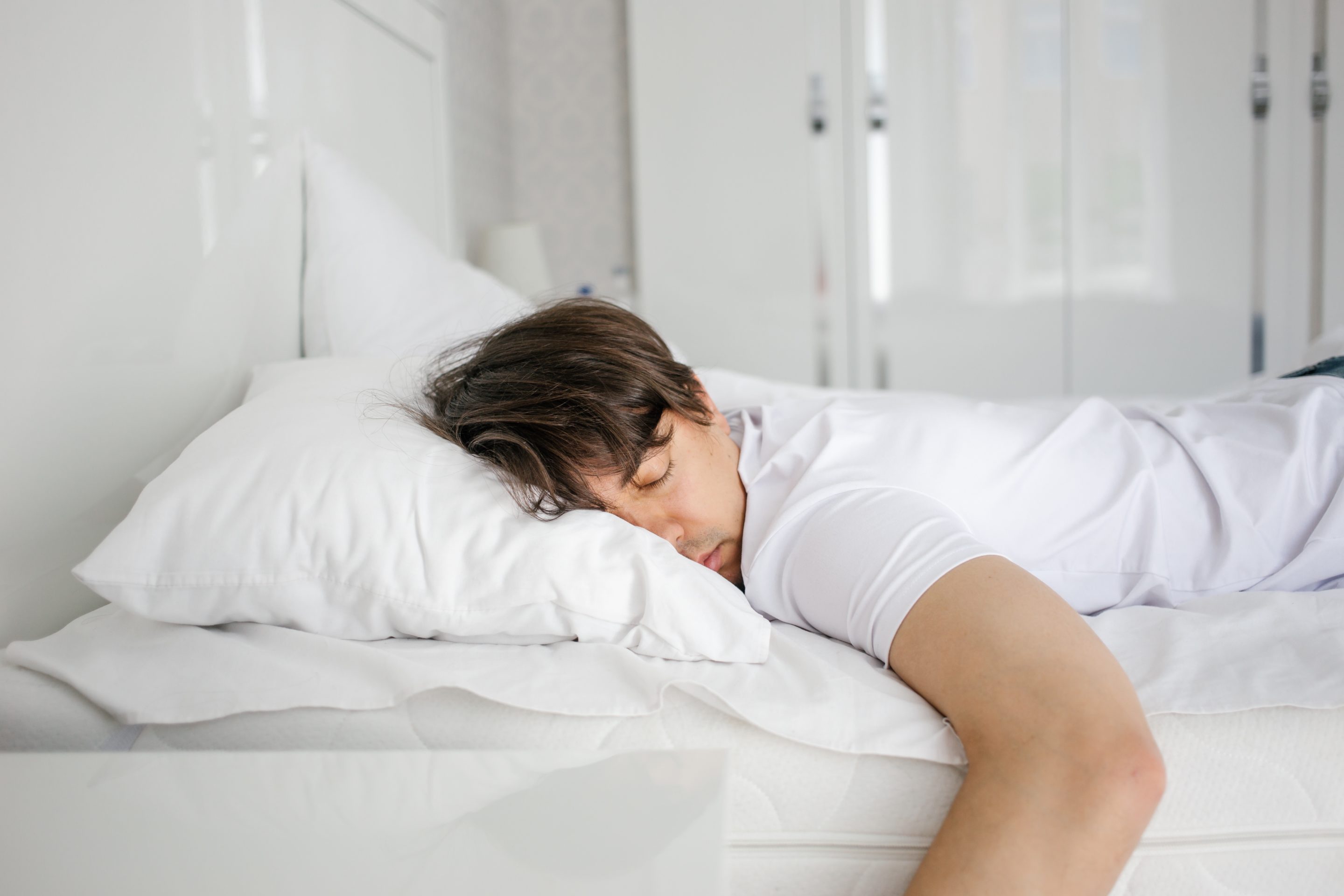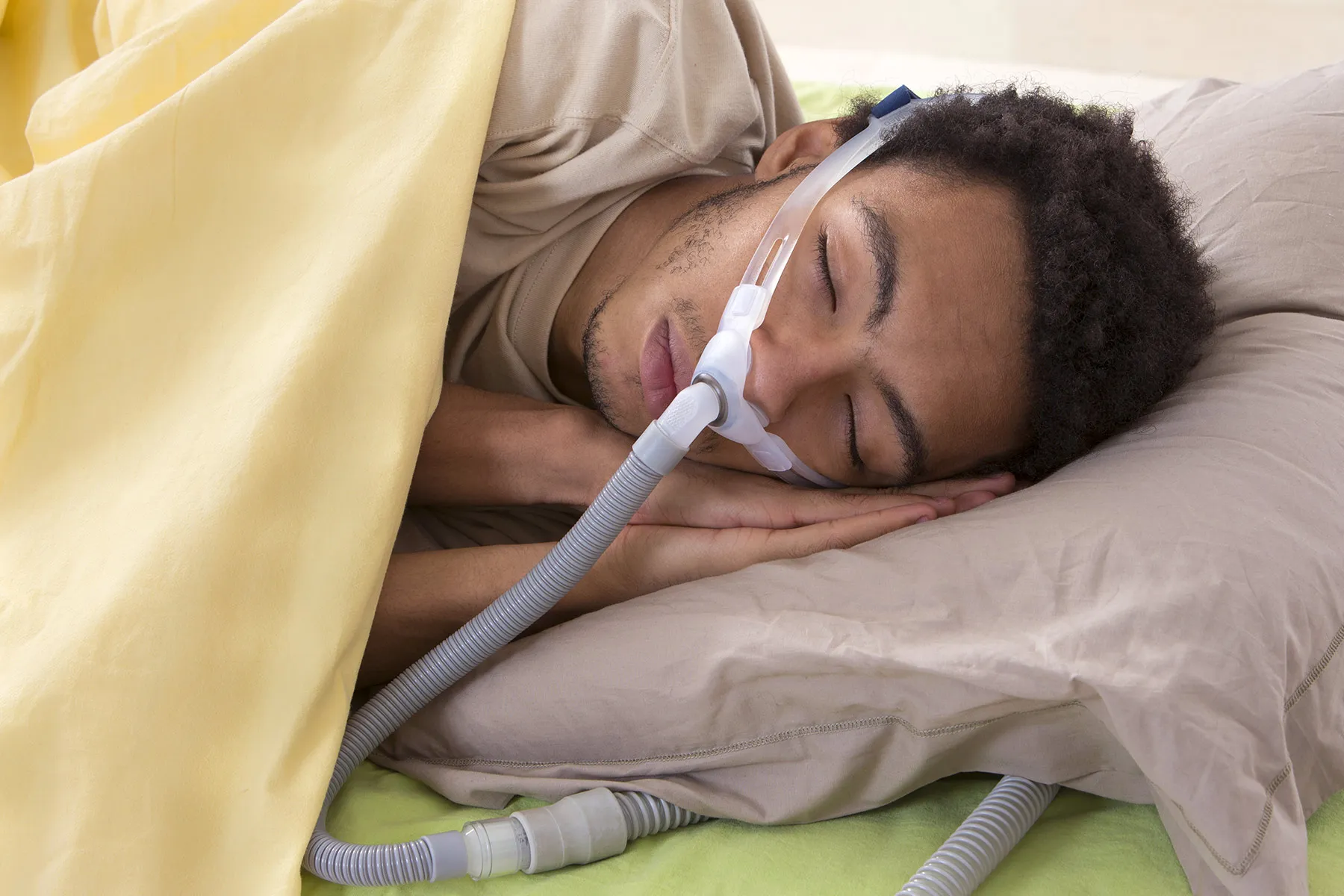1. Stick to a Regular Sleep Schedule
Going to bed at the same time every night and waking up at the same time every morning helps regulate your body’s internal clock. Consistency strengthens your sleep cycles, making it easier to fall asleep and wake up. For those with OSA, maintaining a regular sleep schedule is crucial for better rest and managing symptoms.

Learn more about the importance of a regular sleep schedule at Sleep Foundation.
2. Knock Off Naps
While it might be tempting to take naps during the day, especially when you’re struggling with sleep at night, daytime snoozing can interfere with nighttime sleep. Avoid napping to improve the quality of your sleep at night.
Discover how naps impact sleep at Sleep.org.
3. Curb Afternoon Caffeine
A cup of coffee or another caffeine-laden beverage in the afternoon might seem like a quick energy boost, but caffeine can stay in your system for 4 to 6 hours. To ensure restful sleep, limit your caffeine intake to the morning hours.

Learn more about caffeine’s effects on sleep at Cleveland Clinic.
4. Avoid Evening Alcohol
Even though alcohol may make you feel sleepy, the quality of sleep you get after drinking is poor. It’s best to avoid alcohol in the evening to ensure deeper, more restorative sleep.

Explore how alcohol affects sleep at Mayo Clinic.
5. Reserve Your Bed for Sleep
Your bed should only be used for sleep and sleep-promoting activities like reading with soft lighting. Avoid using your bed for work, media entertainment, or phone calls. This helps your brain associate the bed with relaxation and rest.

For tips on improving sleep associations, check out National Sleep Foundation.
6. Create a Restful Sleep Space
To optimize sleep, ensure your bedroom is cool, dark, and free from distractions. Some people find noise machines helpful for blocking out disruptive sounds like traffic or neighbors. Blackout shades and sleep masks can block out excess light.

Learn how to optimize your sleep environment at Healthline.
7. Snack Smart Before Bed
Going to bed hungry can keep you awake with a growling stomach. But overeating before sleep can disrupt your rest as well. Time your snacks so you’re satisfied, not stuffed, before heading to bed.

For healthy bedtime snacks, check out Harvard Health.
8. Nip the Nicotine
Smoking can increase your risk of obstructive sleep apnea by threefold. Since nicotine is a stimulant, it can also keep you awake. Quitting smoking not only benefits your health but also improves sleep quality.

Learn more about the relationship between smoking and sleep at American Lung Association.
9. Shut Off Screens
The blue light emitted by phones, tablets, and TVs can interfere with your body’s ability to wind down. Experts recommend turning off screens at least 2 to 3 hours before bedtime to ensure a better night’s sleep.

Find out more about how screen time affects sleep at Sleep Foundation.
10. Get Regular Exercise
Physical activity helps deepen sleep, but it’s important to exercise regularly and not too close to bedtime. Working out right before bed can energize you and make it harder to fall asleep.

For tips on exercising for better sleep, visit Mayo Clinic.
By following these sleep hygiene tips, you can improve the quality of your sleep, better manage your OSA symptoms, and enjoy a healthier lifestyle. If sleep problems persist, consult a healthcare provider to explore additional treatment options.












